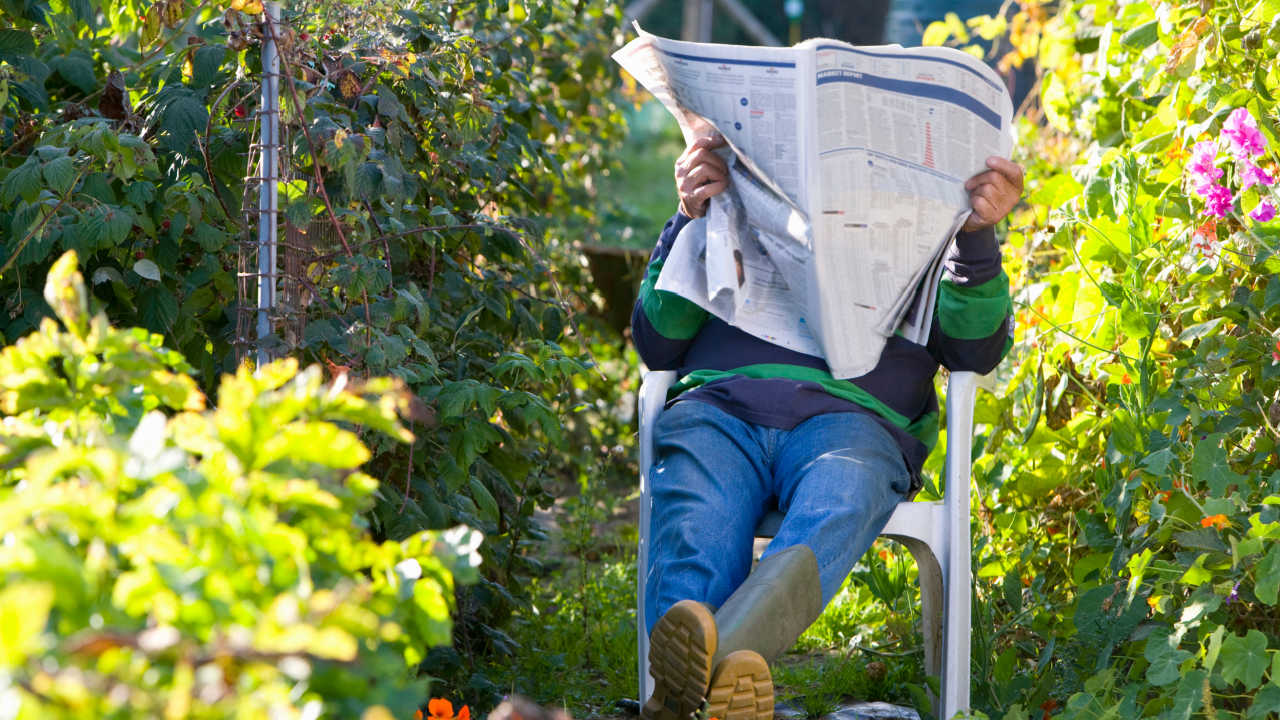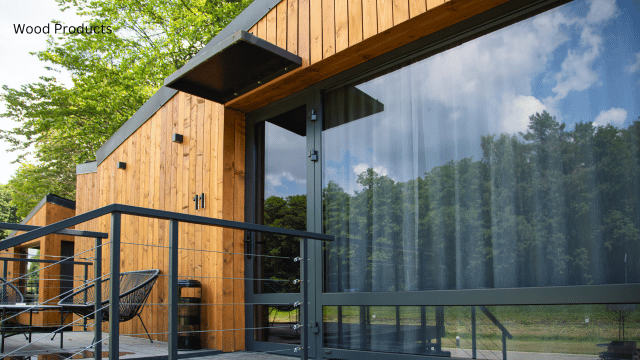When it comes to gardening, there are many reasons to choose an eco-friendly approach. Not only does it benefit the environment, but it also promotes a healthier and more sustainable lifestyle. By opting for eco-friendly gardening practices, you can reduce your carbon footprint, conserve water, and create a thriving ecosystem in your backyard.
One of the main reasons to choose eco-friendly gardening is to protect the environment. Traditional gardening methods often involve the use of harmful chemicals, such as pesticides and synthetic fertilizers, which can leach into the soil and waterways, causing pollution. By adopting eco-friendly practices, you can minimize the use of these chemicals and contribute to the preservation of the natural ecosystem.
In addition to environmental benefits, eco-friendly gardening also promotes a healthier lifestyle. By growing your own organic fruits and vegetables, you can ensure that you and your family are consuming food free from harmful chemicals. Organic produce is not only healthier but also tastes better, as it is grown naturally without the use of synthetic pesticides.
Benefits of eco-friendly gardening
There are numerous benefits to adopting eco-friendly gardening practices. Firstly, it helps to conserve water, which is an increasingly scarce resource. By implementing water-saving techniques such as mulching and drip irrigation, you can significantly reduce your water consumption in the garden. This not only saves money but also ensures that water is used efficiently and not wasted.
Secondly, eco-friendly gardening promotes biodiversity. By planting a variety of native plants, you can provide habitat and food sources for local wildlife such as birds, bees, and butterflies. This helps to maintain a healthy and balanced ecosystem in your garden, contributing to the overall biodiversity of the area.
Another benefit of eco-friendly gardening is the reduction of waste. By practicing composting, you can turn organic waste such as kitchen scraps and garden trimmings into nutrient-rich compost. This not only reduces the amount of waste that goes to landfills but also provides a natural and sustainable source of nutrients for your plants.
Eco-friendly gardening statistics
Statistics show that more and more people are turning to eco-friendly gardening practices. According to a study conducted by the National Gardening Association, over 35% of households in the United States practice some form of organic gardening. This number has been steadily increasing over the past decade, indicating a growing trend towards eco-friendly gardening.
Furthermore, a survey conducted by the Environmental Protection Agency found that 70% of Americans are concerned about the environmental impact of traditional gardening practices. This growing awareness has led to an increase in the adoption of eco-friendly gardening methods, as people recognize the need to protect the environment and live more sustainably.
These statistics highlight the fact that eco-friendly gardening is not just a passing trend, but a movement towards a more sustainable and environmentally conscious way of life. By choosing eco-friendly gardening practices, you can contribute to this movement and make a positive impact on the planet.
Understanding sustainable gardening practices
Sustainable gardening is all about creating a self-sustaining ecosystem that requires minimal inputs and produces minimal waste. Understanding the principles of sustainable gardening can help you make informed choices and create a garden that is not only beautiful but also environmentally friendly.
One of the key principles of sustainable gardening is soil health. Healthy soil is the foundation of a successful garden, as it provides the necessary nutrients and support for plant growth. By improving the organic matter content of your soil through the addition of compost and organic matter, you can enhance soil fertility and structure.
Another important aspect of sustainable gardening is water conservation. Water is a precious resource, and it is important to use it efficiently in the garden. Techniques such as mulching, drip irrigation, and rainwater harvesting can help reduce water consumption and ensure that water is used effectively.
Finally, sustainable gardening also involves minimizing waste and promoting biodiversity. By practicing composting, you can reduce the amount of waste that goes to landfills and create a natural source of nutrients for your plants. Planting a variety of native species can also help attract beneficial insects and birds, creating a balanced ecosystem in your garden.
Water conservation in the garden
Water conservation is a crucial aspect of eco-friendly gardening. By implementing water-saving techniques, you can reduce your water consumption and ensure that water is used efficiently in the garden.
One of the most effective ways to conserve water is through the use of mulch. Mulching involves covering the soil around your plants with a layer of organic material, such as wood chips or straw. This helps to retain moisture in the soil, reducing the need for frequent watering. Mulch also helps to suppress weeds, which can compete with your plants for water and nutrients.
Another water-saving technique is drip irrigation. Unlike traditional sprinklers, which can waste water through evaporation and runoff, drip irrigation delivers water directly to the roots of plants. This ensures that water is used efficiently and minimizes water loss. Drip irrigation systems can be easily installed and are a great investment for any eco-friendly gardener.
Rainwater harvesting is another effective method of water conservation. By collecting rainwater in barrels or tanks, you can use it to water your plants during dry periods. This not only saves water but also reduces your reliance on municipal water supplies. Rainwater is also free from the chemicals often found in tap water, making it a healthier option for your plants.
Organic pest control methods
Dealing with pests in the garden can be a challenge, but there are eco-friendly ways to manage them without resorting to harmful chemicals. Organic pest control methods rely on natural predators, physical barriers, and plant-based repellents to keep pests at bay.
One effective method of organic pest control is attracting beneficial insects to your garden. Ladybugs, lacewings, and praying mantises are natural predators of many garden pests, such as aphids and caterpillars. By planting flowers that attract these beneficial insects, you can create a balanced ecosystem in your garden and reduce the need for chemical pesticides.
Physical barriers can also be used to protect your plants from pests. For example, row covers can be placed over vegetables to prevent insects from laying their eggs on the leaves. Netting can be used to protect fruit trees from birds and squirrels. These barriers provide a physical barrier between pests and your plants, without the need for harmful chemicals.
Plant-based repellents can also be effective in deterring pests. For example, garlic spray can be used to repel aphids and other soft-bodied insects. Neem oil is another natural pesticide that can be used to control a wide range of garden pests. These plant-based solutions are safe for the environment and do not pose a risk to beneficial insects or wildlife.
Composting for a healthier garden
Composting is a simple and effective way to improve soil fertility and create a healthier garden. By recycling organic waste into compost, you can provide a natural source of nutrients for your plants and reduce the amount of waste that goes to landfills.
To start composting, you will need a compost bin or pile. This can be a simple structure made from wire mesh or a more elaborate bin with a lid. The key is to have a container that allows for proper aeration and drainage.
Compostable materials include kitchen scraps, such as fruit and vegetable peels, coffee grounds, and eggshells. Garden waste, such as grass clippings and leaves, can also be added to the compost pile. It is important to balance the ratio of green (nitrogen-rich) and brown (carbon-rich) materials to ensure proper decomposition.
Turning the compost regularly helps to speed up the decomposition process and ensures that the compost is well-mixed. Within a few months, you will have nutrient-rich compost that can be used to improve the fertility of your soil.
Upcycling in the garden
Upcycling is a creative and eco-friendly way to repurpose old items and give them a new life in your garden. By upcycling, you can reduce waste, save money, and add a unique touch to your outdoor space.
There are many ways to upcycle in the garden. For example, old wooden pallets can be turned into vertical planters, providing a space-saving solution for small gardens. Broken or chipped ceramic pots can be transformed into mosaic garden art, adding color and texture to your garden.
Old tires can be painted and turned into colorful planters, while wine bottles can be used as decorative borders or transformed into hanging planters. The possibilities are endless, and upcycling allows you to unleash your creativity and create a truly unique garden.
Not only does upcycling reduce waste, but it also saves money. Instead of buying new planters or garden decorations, you can repurpose items that you already have or find at thrift stores or yard sales. This not only helps the environment but also allows you to create a garden that is uniquely yours.
Planting native species for biodiversity
Planting native species in your garden is an effective way to promote biodiversity and create a thriving ecosystem. Native plants are adapted to the local climate and soil conditions, making them more resilient and less reliant on chemical inputs.
Native plants provide habitat and food sources for local wildlife, such as birds, bees, and butterflies. By including a variety of native flowers, shrubs, and trees in your garden, you can attract a diverse range of pollinators and beneficial insects. This helps to maintain a healthy and balanced ecosystem, where pests are kept in check naturally.
In addition to supporting wildlife, native plants also have aesthetic benefits. They are often well-suited to the local environment and can thrive with minimal maintenance. Native gardens can be beautiful and vibrant, providing a natural and sustainable alternative to traditional ornamental gardens.
When choosing native plants for your garden, consider factors such as sun exposure, soil type, and water requirements. Native plant nurseries and gardening organizations can provide guidance on suitable species for your area. By planting native species, you can contribute to the preservation of local biodiversity and create a garden that is in harmony with nature.
Conclusion
In conclusion, eco-friendly gardening practices offer numerous benefits for both the environment and your own well-being. By choosing to garden in an eco-friendly manner, you can reduce your carbon footprint, conserve water, and create a thriving ecosystem in your own backyard.
Water conservation techniques such as mulching, drip irrigation, and rainwater harvesting can help minimize water usage and ensure that water is used efficiently. Organic pest control methods, such as attracting beneficial insects and using plant-based repellents, can help manage pests without the need for harmful chemicals.
Composting provides a natural source of nutrients for your plants and reduces waste that goes to landfills. Upcycling allows you to repurpose old items and add a unique touch to your garden while reducing waste and saving money.
Finally, planting native species promotes biodiversity and creates a garden that is in harmony with nature. By incorporating these eco-friendly gardening hacks into your gardening routine, you can make a positive impact on the environment and enjoy a beautiful and sustainable garden.
So why wait? Start implementing these eco-friendly gardening hacks today and reap the benefits of a greener and more sustainable lifestyle.


